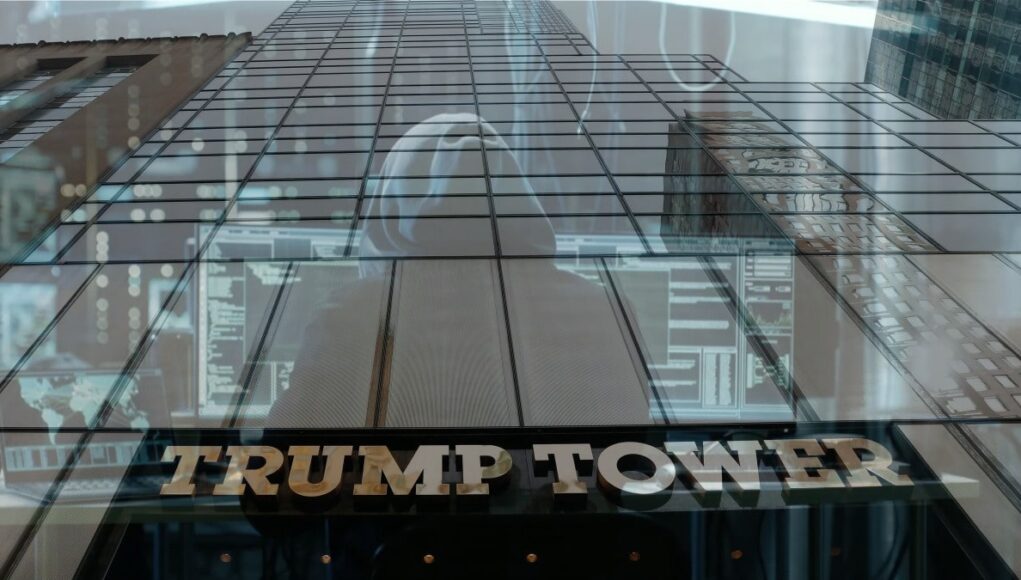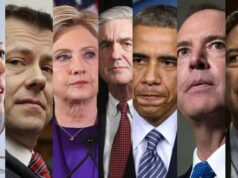Manufactured consent has been a well-known tactic of our leaders since Noam Chomsky wrote about it in his well-circulated book from Manufacturing Consent first published in 1988. Recent examples of these tactics were shown with the climate warming campaign with the infamous “97% of scientists agree” mantra. Another example is COVID-19 policies and outgoing NIAID Director (National Institute of Allergy and Infectious Diseases) Dr. Anthony Fauci calling anyone who didn’t agree with his flavor-of-the-week creed, “fringe scientists”.
If anyone challenges these attempts at a false consensus of experts, they are called loons and conspiracy theorists. It’s effective.
An example of attempts to build a false narrative and give it credibility was seen on October 31, 2016—nine days before the presidential election. An article came out in Slate Magazine accusing then-candidate Donald J. Trump of working with a Russian bank, and was subsequently cited on social media by his opponent—Hillary Clinton. How did the author and Hillary come to that conclusion? Well, they trusted the experts that gave them the story.
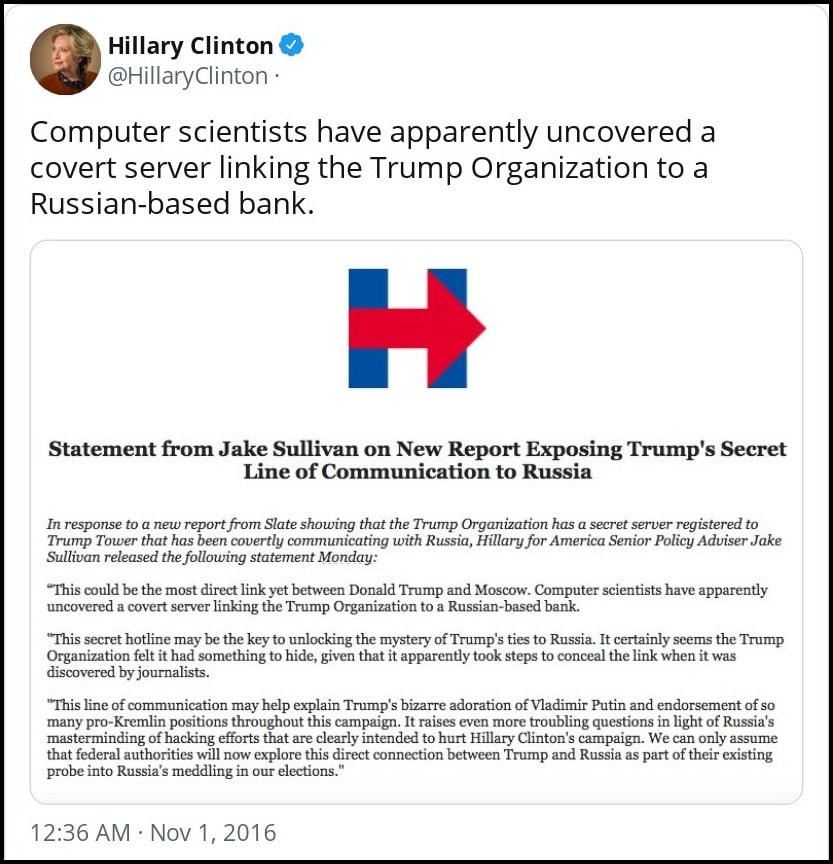
Manufactured consent appears in spades in the Slate article by Franklin Foer titled, “Was a Trump Server Communicating With Russia?” In the article, Foer describes how a group of computer specialists discovered “needle in a haystack” communication between Russian Alfa Bank and the Trump Organization.
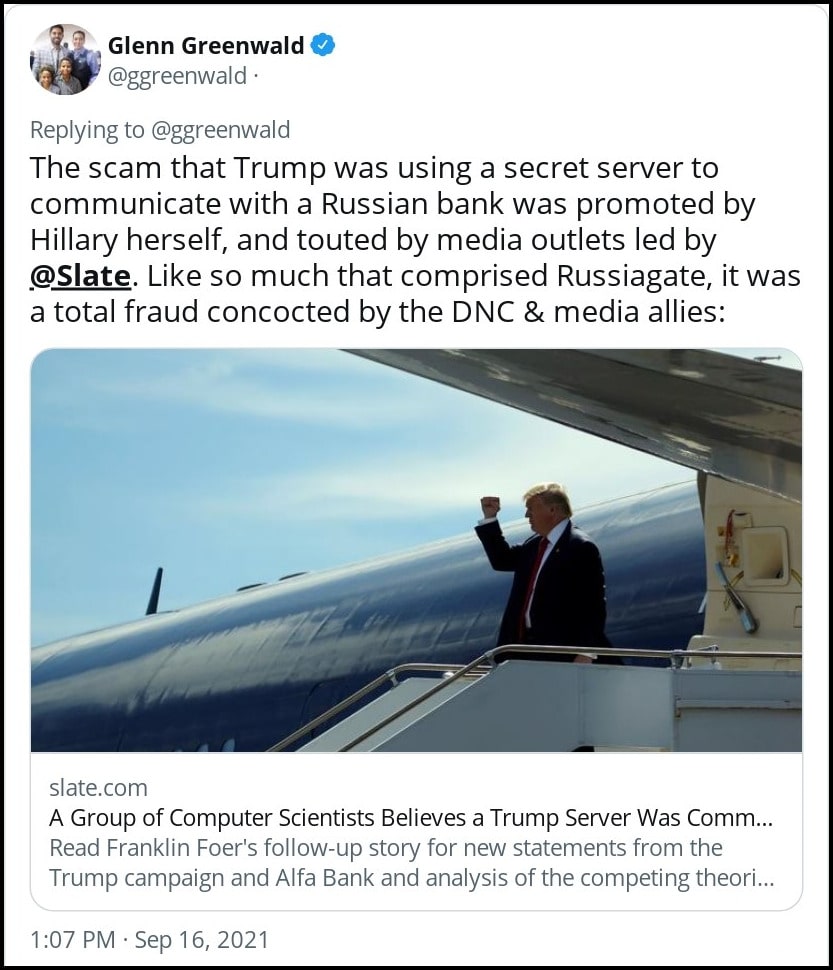
One of those computer scientists in the “Union of Concerned Nerds” group posted under the pseudonym Tea Leaves on Reddit in September 2016 about what the group had been monitoring since July of the same year and throughout the summer. L Jean Camp—a computer science professor out of Indiana University—is quoted frequently in the Slate article. Camp states that she, Tea Leaves, and others were spurred by a sense of shared idealism, and gives a description of the mysterious Tea Leaves:
I also spoke with academics who vouched for Tea Leaves’ integrity and his unusual access to information. “This is someone I know well and is very well-known in the networking community,” said Camp. “When they say something about DNS, you believe them. This person has technical authority and access to data.
Chris David—who runs the cybersecurity firm HYAS InfoSec and once won an FBI Director Award for Excellence—commented about the findings by these “Concerned Nerds.”
I’ve never seen a server set up like that ... It looked weird and didn’t pass the sniff test ... No reasonable person would come to the conclusion other than the one I’ve come to ... When the technical community examined the data, the conclusion was pretty obvious.
According to Camp, she monitored the DNS lookups all summer and found that:
"At election-related moments, the traffic peaked.” For instance, during the [Republican and Democratic National] Conventions.
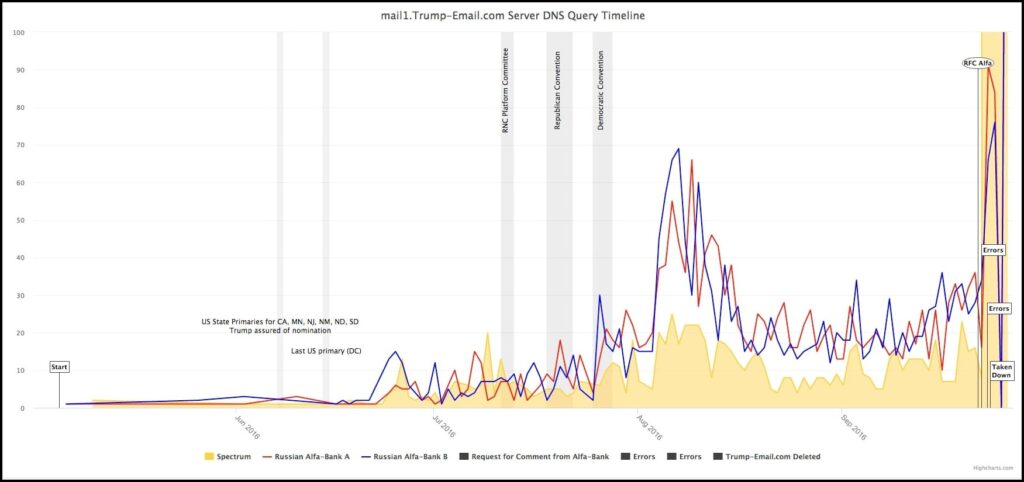
Another computer scientist—Nicholas Weaver—comments about how the server shut down three days after the New York Times reached out to Alfa Bank—insinuating a cover-up. Weaver said the Trump domain was “very sloppily removed”. Foer then quickly backs up the claim by quoting an anonymous researcher saying:
[I]t looked like “the knee was hit in Moscow, the leg kicked in New York.”
The analysis by Camp of Tea Leaves’ findings and expertise is further backed by Paul Vixie—that the article quotes as saying,
The parties were communicating in a secretive fashion. The operative word is secretive. This is more akin to what criminal syndicates do if they are putting together a project.
This repeated playbook of well-timed hit pieces of experts that agree on some amorphous consensus is reckless and amoral; it has made some Americans wake up to forced narratives.
For others though, it is like it was sent from God himself to Vixie. As Slate’s Foer gushes,
In the world of DNS experts, there’s no higher authority.
Wow! That is some level of accolades by the author of the article for Vixie. How can I—a nobody—dispute this article? I mean, I know nothing about the technical aspect of such things as DNS lookups. I also don’t know much about CO2 levels or spike proteins either. I should just submit to these higher authorities as they clearly are the “experts.” Or should I? What about that nagging feeling that you are being gaslit by so much authority telling you what is right and wrong?
Hillary’s team even tried to frame the whole Alfa Bank communication on one American—Sergei Millian—through cleverly dropped hints to the FBI, DOJ, and media that he was the intermediary.
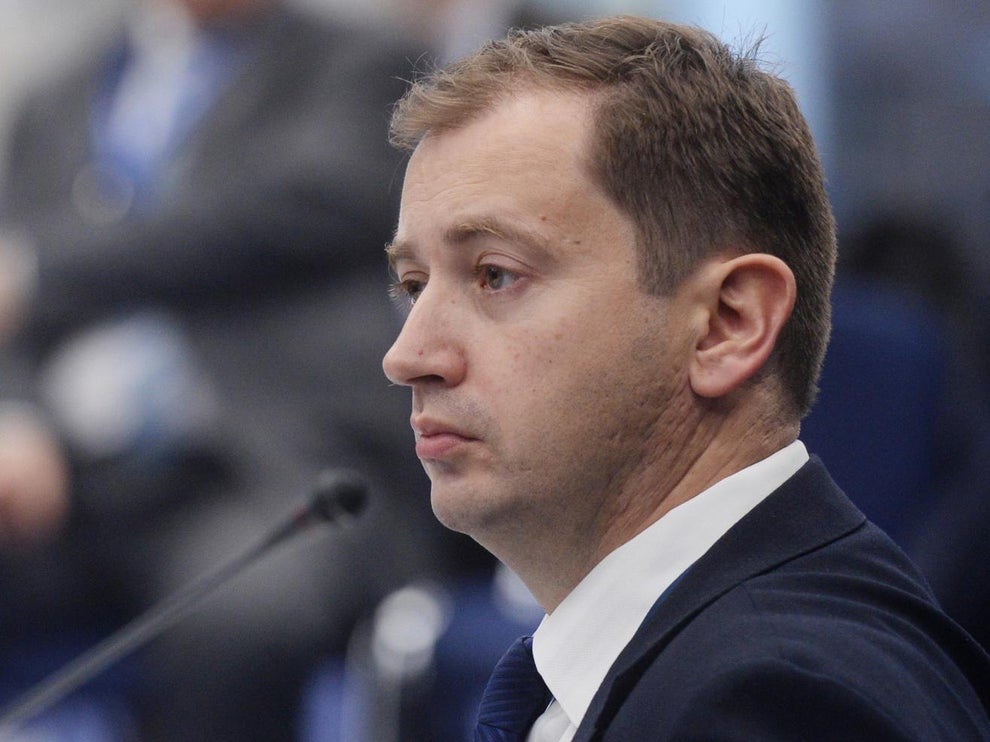
As Franklin Foer states at the end of his article,
We don’t yet know what this server was for, but it deserves further explanation.
Yes. Yes, it does. Maybe we can call back all these experts to once again discuss their findings. Let’s question the “Union of Concerned Nerds” and ask them who put them up to this fiasco of a false flag on Trump and his associates. No amount of manufactured consent will make me believe the analysis of these experts.
We are owed an apology by these scientists, journalists, and politicians who put winning at all costs above being good citizens. The lies have had serious consequences, far more than how I vote. They have made me lose faith in so many we are told to trust, and we have also lost the trust of whole nations.
Enough.
The Washington Pundit | Speak Truth To Power
Author of Dragon Games: Based on a True Story of Sergei Millian, The Hermitage Effect: How Bill Browder and her fiction book Buried Treasure. Lives in Massachusetts.



